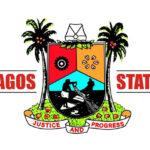FOR the week ended August 16, 2024, the Nigerian Exchange (NGX)-Banking Index experienced a decline of 2.28 percent on a week-on-week (w-o-w) basis, closing at 837.67.
This performance reflects mixed results among Nigeria’s banking sector, particularly between Tier 1 and Tier 2 banks, with some banks showing resilience while others faced significant declines.
Among the Tier 1 banks, Guaranty Trust Bank (GTCO) stood out with a strong performance. GTCO’s share price increased by 13.58 percent year-to-date (YTD), making it a notable performer within the banking sector. The positive movement, according to Proshare’s Bank Recapitalisation watch, contrasts sharply with the performance of other Tier 1 banks.
On the other hand, both Ecobank and Zenith Bank experienced declines in their market capitalisation last week.
Ecobank’s share price dropped by 6.18 percent week-to-date (WTD), while Zenith Bank saw a decrease of 2.19 percent WTD. Over the year, other Tier 1 banks also faced challenges, with Access Bank recording the most significant decline at 17.28 percent YTD.
In the Tier 2 banks category, there was a mix of positive and negative performances. Wema Bank and FCMB demonstrated resilience, with share prices increasing by 7.14 percent and 2.03 percent, respectively. However, the broader picture for Tier 2 banks was less encouraging, with three other banks in this category experiencing declines.
Sterling Bank and Stanbic IBTC Holdings recorded the most significant year-to-date (YTD) declines among Tier 2 banks, with Sterling Bank’s share price plummeting by 37.58 percent and Stanbic IBTC Holdings by 23.33 percent YTD.
Despite these significant YTD declines, both banks managed to slightly improve their performance last week, with Stanbic IBTC and Sterling Bank posting modest week-to-date (WTD) share price increases of 0.75 percent and 0.50 percent, respectively.
Generally, the recapitalisation watch showed that GTCO’s strong performance highlighted its outperformance compared to its Tier 1 peers, who generally experienced a downward trend.
The positive result for GTCO has been a bright spot in an otherwise challenging week for the banking sector. Despite the ongoing recapitalisation efforts and market fluctuations, GTCO has managed to maintain investor confidence.
In contrast, the overall decline in share prices among the other Tier 1 banks suggests a challenging environment, potentially influenced by macroeconomic factors, investor sentiment, or specific financial performance issues within each bank.
There were no new announcements last week from the banks regarding the recapitalisation watch mandated by the Central Bank of Nigeria (CBN). The most recent related communication came from Zenith Bank, which announced a hybrid offer alongside a public offer. This move is part of its strategy to strengthen its capital base and ensure compliance with the CBN’s recapitalisation directive.
In addition, the CBN recently approved the merger between Unity Bank and Providus Bank. This merger is seen as a strategic move to consolidate resources and enhance the stability and performance of both banks in a challenging financial environment.
Furthermore, Access Holdings Plc announced an extension of the acceptance list for its Rights Issue, initially scheduled to close on August 14. The new closing date is now set for August 23, as approved by the Securities and Exchange Commission (SEC). The extension provides investors with additional time to participate in the Rights Issue, which is aimed at raising capital to support the bank’s growth and recapitalisation plans.
The performance of the NGX-Banking Index and individual banks last week underscores the ongoing volatility and uncertainty within Nigeria’s banking sector. The mixed results among Tier 1 and Tier 2 banks highlight the diverse challenges and opportunities faced by these institutions.
However, analysts believe that strong fundamentals and strategic initiatives can still attract investor confidence even in a difficult market. Conversely, the significant declines seen in other banks, particularly in their YTD performances, indicate areas of concern that may need to be addressed through recapitalisation, strategic mergers, or other interventions.
The recapitalisation efforts, mergers and capital raising activities in the sector are likely to continue as banks seek to strengthen their financial positions and meet regulatory requirements. The ongoing recapitalisation by the CBN is a critical factor that banks must navigate to ensure long-term stability and competitiveness in the market.
As banks continue to navigate the recapitalisation requirements and other regulatory pressures, their ability to adapt and innovate will be key to sustaining investor confidence and achieving long-term growth.
READ ALSO: Family of six dies after eating local delicacy in Kano






